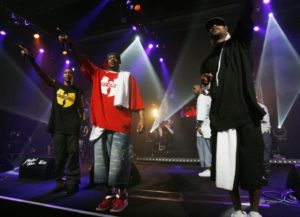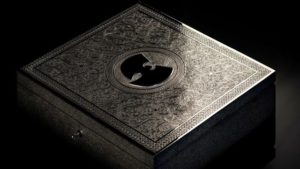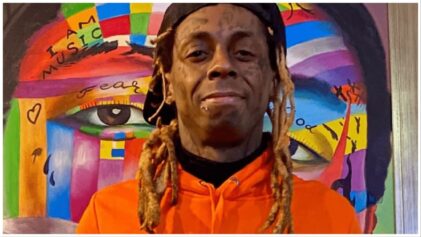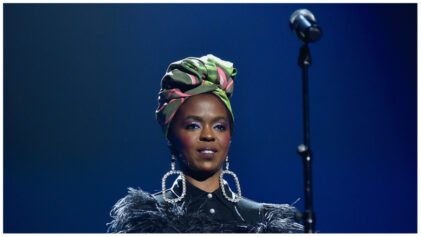
This sole copy of the album, which is currently being protected in a locked container, is supposed to be auctioned off with a hefty price tag in order to uphold the idea that hip hop should be valued as high art. As the work finally goes to auction, however, many are arguing that the group’s unconventional approach to releasing the project is actually undermining hip hop’s roots rather than promoting the art form.
In the midst of growing conversations about the value of hip hop and the respect it deserves as a true art form, the iconic rap group Wu-Tang Clan revealed that it would only be selling one master copy of its latest album Once Upon a Time In Shaolin.
Since it will be the only copy going up for sale, the group reportedly started bidding for the work at $5 million. That staggering asking price encouraged the rappers to keep the copy locked up in a hand-carved nickel and silver container.
It’s nothing that would particularly catch the attention of JFK’s TSA agents—unless they weren’t able to open it.
The hip hop stars forgot the key to the locked box on Sunday when they made their way through the airport. Without the key, TSA agents were unable to confirm what was actually inside, which ultimately led to the box being confiscated.
Eventually, all the fuss died down when the agents ran the box through their “rarely used highest-strength scanner,” according to Page Six.
This assured them that the contents of the locked box served no threat to any passengers. It did not, however, assure critics that the contents of the box would help hip hop gain any respect in the world of art.
While the unconventional approach to the new album certainly garnered a new wave of media attention and significantly boosted the price tag for the album’s sole copy, some argue that it may not actually serve its intended purpose of elevating hip hop as an art form.
The entire plan for the album is to ship it off to the highest bidder without selling any of the songs’ copyrights.
Wu-Tang Clan members do not plan to release the album to the public for another 88 years.
The hip hop icons insist that it is through these means that people will finally learn to view hip hop as high art and not as a cheap commodity that can be snatched online for little to nothing and streamed on repeat without sufficiently compensating the artists behind the music.
“In an age where the work of musicians is increasingly perceived as being accessible, affordable, and expendable as a box of paperclips, acknowledgement of the profound artistry required to write a moving verse, produce a transformative album or navigate a formidable career, is often reduced to an unread liner note,” Wu-Tang member RZA said in a joint statement online along with Paddle8, the auction house selling the album. “Such a scenario in the art world—if the only Picassos to be seen were postcards—is unimaginable.”
On the surface, the concept seems flawless. An original Picasso would be worth millions. Why not give the same dollar value to hip hop art?
For one, according to The Atlantic’s Spencer Kornhaber, the history of hip hop is rooted in the value of people, not the dollar.
“…Many fans say it’s an affront for a band that once spoke for the streets to reserve its latest project for rich elites,” Kornhaber wrote.
“Rap already is art—a creative outlet that expresses big truths and provokes aesthetic responses,” Kornhaber added. “Wu-Tang, with its post-modern mashup of comic-book tropes, kung-fu sounds, and vivid tales of urban struggle, has long been one of the poster kids for that idea.”
The true value of art can’t be measured by dollar signs and suggesting that one multi-million dollar copy praises hip hop as art while millions of $10 -$15 dollar copies devalues it, can be seen as jab to hip hop’s most loyal consumers.
Those very consumers that propelled Wu-Tang to legendary status but would never be able to afford to get their hands on a million dollar album.
So while the group’s unusual marketing approach is still indicative of the type of entrepreneurial mindset that is worthy of praise, there is still a dire need for a middle ground between access to consumers and compensation for artists.
Hip hop certainly needs to be uplifted in the art community but consumers should never be placed in a position where promoting hip hop ultimately pushes them far below the tax bracket of those who would be able to afford the latest album.
This especially can’t happen with a musical genre that credits much of its success to the Black communities that have always deemed hip hop as art, regardless of what music critics and lavish auction houses have had to say about it.



